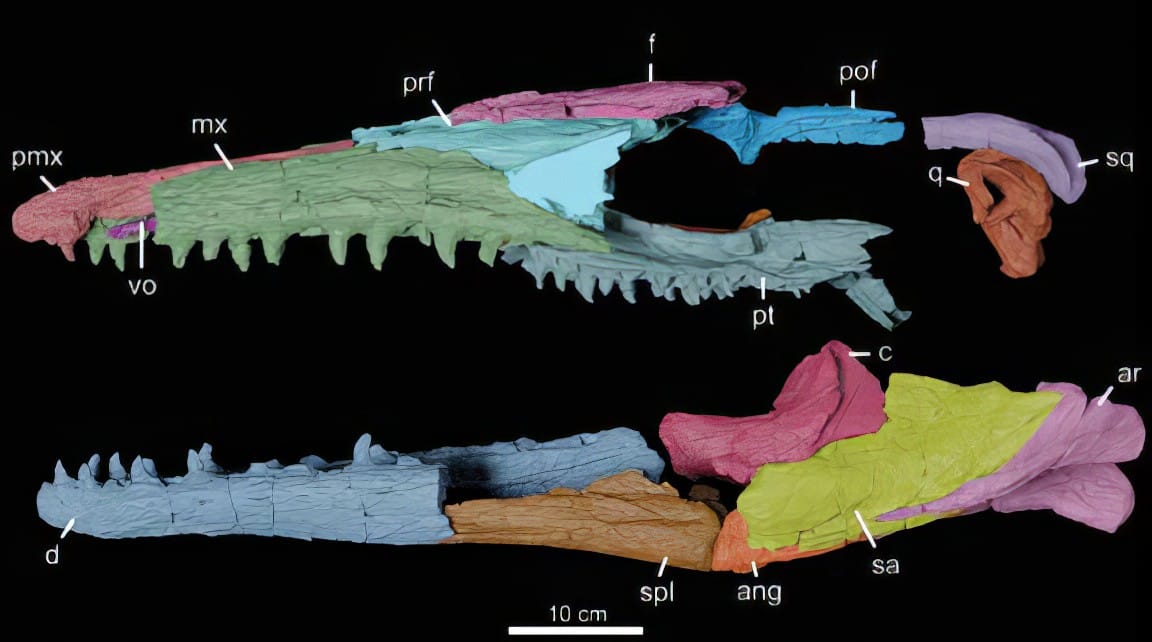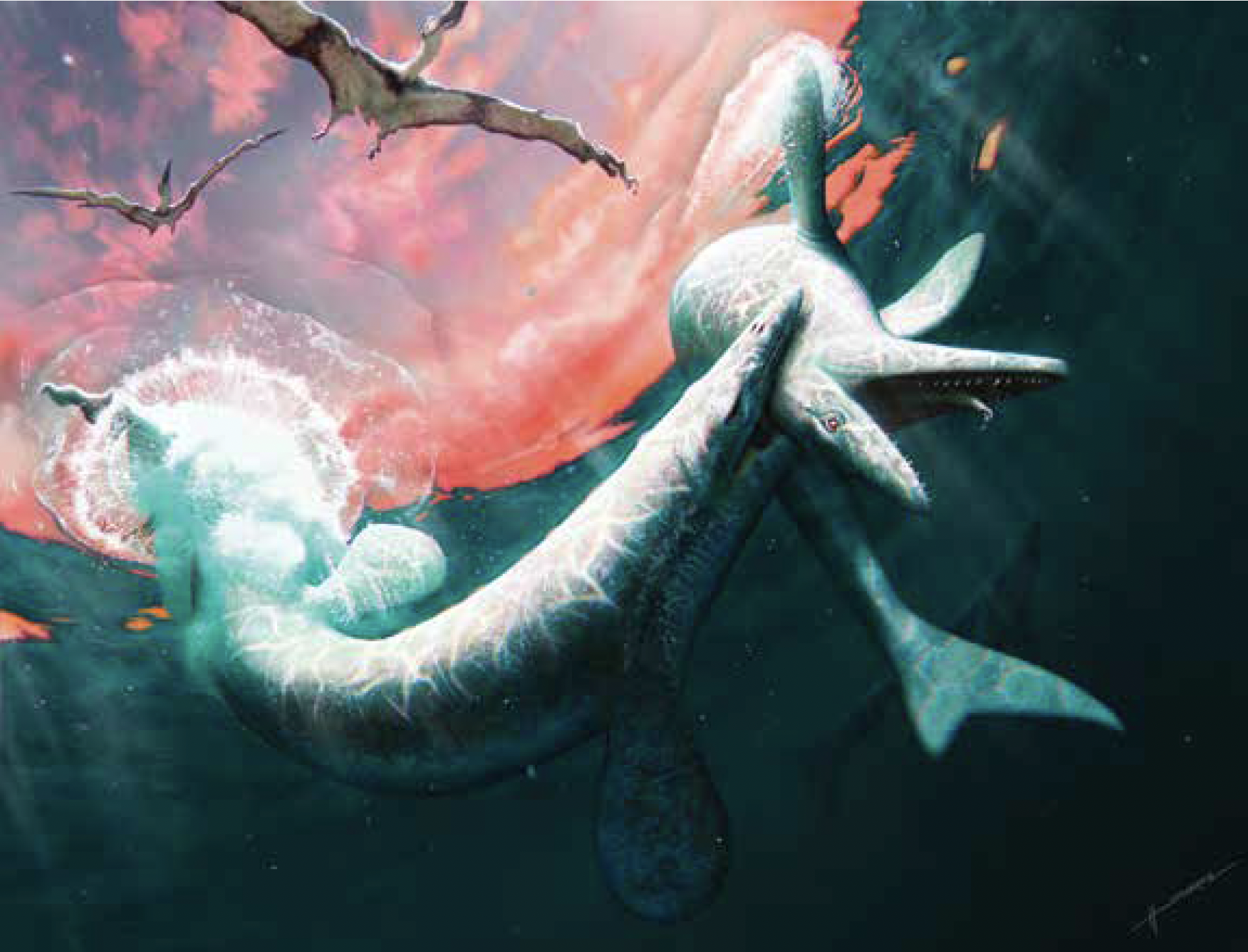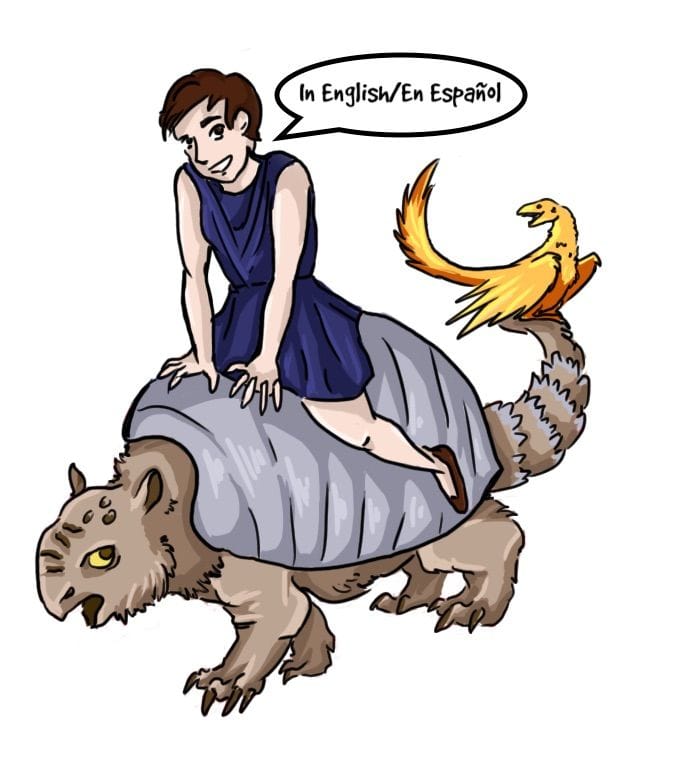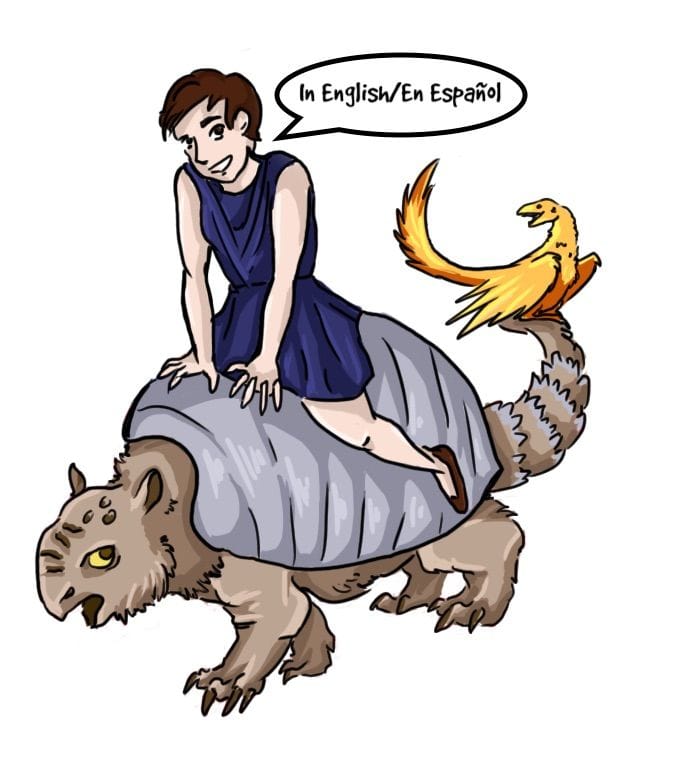The Reptile From Walhalla

Move over, Loki! A new character has just dropped into the scene. In late October (2023), a [study] came out describing a new mosasaur from North Dakota. Mosasaurs are marine reptiles that lived alongside the dinosaurs during the Late Cretaceous (98-66 million years ago). They are not dinosaurs! They’re actually more closely related to lizards and snakes.
The discovery of this specimen was difficult because the hillside that the fossil site sits in is actively slumping. The team used photos from the past 25 years and Laser Imaging, Detection, and Ranging (LiDAR) to trace the site back to its origin so that they could find more fossils. It was in that search that they found this new specimen - an almost complete skull and jaw, with a few vertebrae and ribs as well.

The team, led by Amelia Zietlow, a graduate student of the American Museum of Natural History, named the new mosasaur Jormungandr walhallaensis. The name comes from Walhalla, North Dakota, a town near where the fossil was found. The word “Walhalla” comes from the name for the great hall of Odinn from Norse Mythology (Valhalla), so the authors chose to honor this heritage by giving the new specimen the genus name “Jormungandr.” This is the name of Loki’s (son of Odin) second son and the “world serpent” that was thrown into the ocean and eventually signified the end of the world by submersion in the water.

The authors ran a phylogenetic analysis to test for evolutionary relationships and found that Jormungandrrepresents a more basal species. They also note that the analysis doesn’t have enough information to really test these relationships and that its position on the tree will probably change as more specimens are found. After talking with Amelia, she explained that some of the important characteristics on the fossil aren’t represented in the data analysis, and that Jormungandr is probably a transitional form between Clidastes and Mosasaurus, two other species of mosasaurines.
Don’t forget to check out my interview with Amelia! ↓





Comments ()